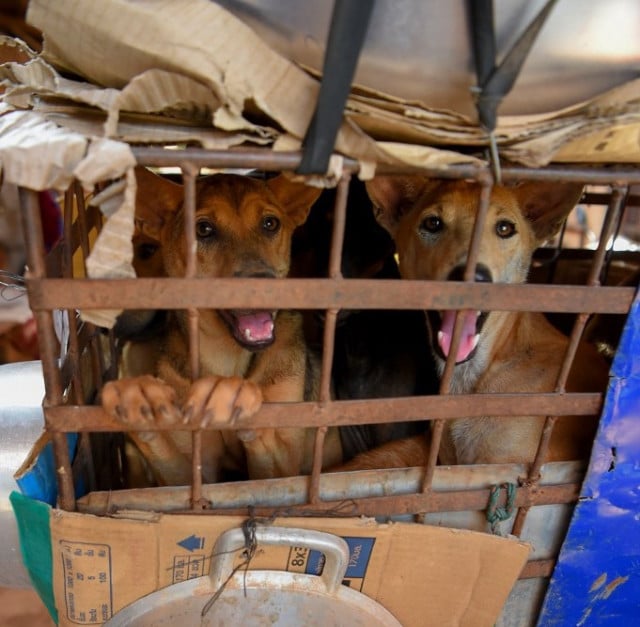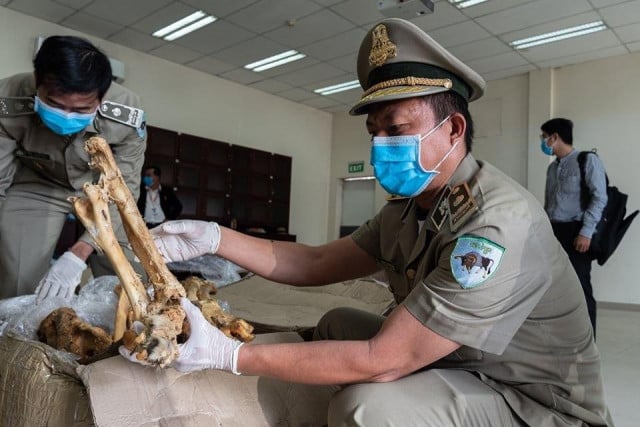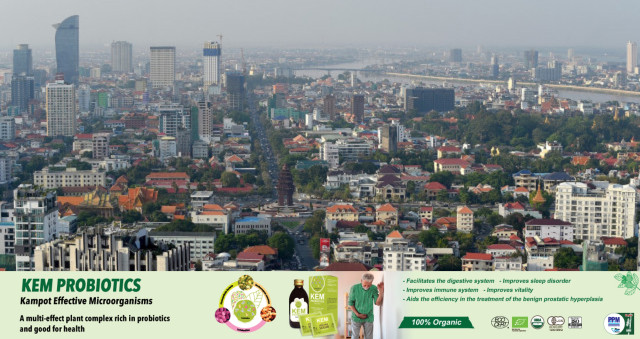Cambodia’s Dog Meat Ban: What Can We All Do Next to Help?

- Sao Phal Niseiy
- July 19, 2020 9:52 AM
Siem Reap Province’s pledge to ban all kind of dog meat trade on July 8 earned acclaim both internationally and domestically. The decision demonstrates that the authorities are beginning to value animal lives and comprehend the existential social issue, which needs a fix.
Home to the famed Angkor Wat temple, Siem Reap Province is known as a place where the eating of dog meat has become widespread with more than 20 restaurants going as far as putting dog meat on the menu, according to the report by a global animal welfare organization, Four Paws.
But this is not only in Siem Reap Province. Known locally as “special meat,” it is also being devoured in many other provinces across the country including the capital city, Phnom Penh. The city alone has 110 dog-meat restaurants with each of them serving roughly four to six dogs per day. With this estimation, as many as 3 million dogs are slaughtered, traded and consumed in Cambodia every year, according to the same report.
Therefore, the decision to ban the dog-meat trade in Siem Reap Province is just a substantial, initial step toward achieving full legal protection for dogs countrywide, and it is unavoidable that more work needs to be done to make this ambitious but requisite plan happen.
Obviously, there are some irrefutable reasons why dog-meat feasting should be completely forbidden in Cambodia. First of all, dog-meat consumption might not only pose a snowballing risk of disease transmission like the 2019 Novel Coronavirus that has led to a pandemic, but doing so also has incontestably signified a morality issue as well as a regression in our prominently civilized culture because it truly is barbaric and considerably brutal. Dogs are known as all men’s honest friends and we have feelings toward them as some people even consider them family members. Thus, butchering them for food only tells the world how wicked we are and how uncivilized our society is.
As I raise morality and an ethic factor when it comes to dog-meat consumption, some might argue that we are being hypocrite because it is a fact that the lives and rights of other animals such as poultry, pigs, cows and so on matter too. I am not repudiating this, but here we primarily attach importance to the feelings we have for particular pets like dogs and cats, which are so close to us. The path toward guaranteeing animals’ rights and the promotion of veganism is strongly emboldened, which will generate much reward for our health, our universe as well as our future generations.
However, it will take time because anything involving a shift in food choices and food production chain demand our ability to adapt and our resolute determination to change.
The second reason is that Cambodians are not living in a society where starvation is widespread—a condition in which people are compelled to eat whatever they can find to survive. This is called necessity and unavoidability.
Having gone through a tragic past, Cambodia realized full peace in 1998, and the country has experienced a robust growth and development and, despite profound social inequality, it is no longer a war-torn society where the majority of people face dire food shortage or undernourishment, leaving them no choice but to eat any animal out of necessity in order to meet their basic needs or just survive.
On the other hand, the issue of dog-meat consumption is actually not about poverty and poor people who have nothing to eat. It is more about those who want to try tasting dog meat with alcoholic drinks just for pleasure.
On top of that, some believe that such meat can help them lose weight as well as cure some illnesses such as joint issues for instance, just like they blindly believe in the myth that bushmeat has momentous medicinal benefits. Therefore, such cruelty should be brought to an end and the authorities in the provinces should take prompt and rigorous action to end this prevalent dog-meat trade and consumption.
The third reason is that dog-meat eating is not part of our culture or traditions. Even though some people argue that it is—or that it is for people from Chinese descent, for example, who have been sticking to—such a culture must be altered for good. Culture is about the values we uphold.
Culture also requires change when need be in accordance with actual social circumstances. We must not espouse any belief or culture that we know is harmful and bad: Our main obligation is to preserve what is good and alter anything that fits us no more or belittles our human values and virtues.
But stressing these reasons will not, I believe, be sufficient to make a difference and will not guarantee success in effectively putting an end to the dog-meat trade in Cambodia. Therefore, it is more critical than ever to discuss what each of us can do individually as well as collectively to buttress this advocacy for a dog-meat trade ban and make sure it grows in strength.
As I mentioned earlier, such movement has to be a long-term effort backed by solidarity from us in this country. Even though the ban imposed by a provincial authority has sent a clear and strong message to dog-meat consumers and traders, it does not automatically translate into a ban that will be effective to coerce those people and embolden others to follow suit.
Thus, all dog lovers as well as people who really care about animals’ lives should feel beholden to continue the work as legal enforcement overseers, to speak up against any inhumane treatment of dogs as well as other animals, and to keep pressing for more legal frameworks to protect those animals’ rights. In a healthy society, every citizen plays a role, monitoring the authority’s performance and policy implementation—which also is the source of accountability and transparency.
The ban against the dog-meat trade will not be effective unless legal enforcement is rigorously and properly carried out. And this can only happen when we are able to exercise the right and utilize our critical role to scrutinize the authorities’ work, acting as watchdog.
On the legal front, besides keeping track of the authorities’ work, such movement must be thoroughly and structurally institutionalized, being transformed into some sort of local and national animal welfare association or organization. Because it will take more than a one-shot campaign and will require a great deal of work that will involve congregating public opinion and pressuring the relevant authorities to take further legal action. This being the case, the domestic advocacy work must be armed with legal means.
Moreover, as mentioned earlier, a misperception has remained a major driving force of dog-meat eating habit. As some unreasonably believe that dog meat has health benefits, this warrants that knowledge and understanding must be sharpened, thereby making awareness campaign on dog rights inevitable. Thus, every one of us and particularly the influencers who have more sway on public opinion should come together and run a campaign to promote dog rights. On top of that, it remains critical that the media also partake in making change.
Additionally, as some people act out of senselessness and irrationality when it comes to consuming dog meat, naming and shaming tactics literally work, to a certain extent, in this context. Taking this into account, our main duty is to discourage dog-meat consumption while encouraging people to boycott the products in order to end market demand.
It begins with all of us speaking against anyone who still consumes dog meat anytime we are able to. I speak, you speak, and every one of us keep speaking until a concrete action against the dog-meat trade is taken and a behavior change is attained.















